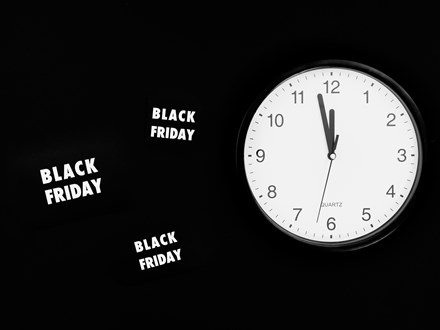If it’s the thought that counts, what does it mean when you buy a cheap piece of junk for yourself or anyone from your parents’ generation. Spoiler: They don’t want it. They grew up at a time when Kiwis generally didn’t think you needed to own a whole lot of stuff. They valued a few possessions they could depend on. And, if something stopped working or started showing signs of wear and tear, they’d repair it or take it to someone down the road who could.
That’s how it used to be. And that’s how it needs to be again. We need a more mindful approach to consumption.
Have you ever stopped to think about the toll consumerism places on your mental wellbeing? The culture of excessive consumerism could be affecting our mental health more than we realise. Instead of chasing after the next discounted gadget, it's time to redefine what true value means in our lives. We need a world where our possessions enhance our overall contentment, rather than contributing to stress and a feeling of being overwhelmed.
In addition to the impact on wellbeing, the environmental effects of consumerism are plain to see. A report by Green Alliance says up to 80% of items, including any plastic packaging they are wrapped in, are thrown away, often after a very short life. In the US waste increases by 25% between Black Friday and the New Year.
We don’t have figures for “pure, green New Zealand” but that increase is likely to be the same here, if not worse. That’s because Aotearoa New Zealand is the third most wasteful country in the OECD. Kiwis produce five times the global daily average of waste per person – and we’re getting more wasteful. We’re now producing 35% more than a decade ago and most of it is imported.
For the sake of our health and that of the planet, it’s time to reverse the over-consumption trend. Start now and join the anti-Black Friday movement. You can quite literally do that from the comfort of your own chair. Step away from your online shopping device and don’t go to the mall (you could even avoid being stuck in a traffic jam for three hours).
This isn’t about stopping our spending. It’s about spending wisely. You can think of money as an exchange system where it is exchanged to support things that are inherently good – good for planet, people and wellbeing.
If you don’t need it, don’t buy it. Think about buying services instead like an experience, a meal, or hiring an electric vehicle for the weekend.
Channel professional tidying up expert Marie Kondo who tells us to only hold on to the things that spark joy. Be two steps ahead. Think before you buy so you’re not dumping your ‘must-have’ bargain into landfill a short time later.
If you’re on the hunt for a new item consider what will happen to it when its time is up. Is landfill really the option you want? Can you sell or pass your pre-loved item on to someone else? With that in mind, do you even need to buy new? Buying second-hand has a lot going for it. There’s the thrill of the search (and sometimes the chase), plus it can be hugely satisfying if you’re a bargain hunter. There’s also a good chance there’ll be a lot less packaging.
Other things to consider. Can it be repaired or maybe disassembled so its parts can be used for something else? I bought a big brand action camera in 2020. It was awesome until it inexplicably died after only two years. I’m guessing a component failed but the company didn’t offer a diagnostic or repair service. That means my relatively new camera could have ended up in landfill. To avoid that I put it on Trade Me this week with a $1 reserve. Maybe someone can use it for parts. One potential buyer thinks they might even be able to fix it. I really hope that happens.
My camera story also helps illustrate the benefits of shopping local and supporting smaller businesses that actually care about providing helpful customer service. Dealing with an international company that doesn’t care takes a lot of time and isn’t my idea of fun. Driving to the other side of town to buy a sale item, or purchasing from overseas, can be false economy when you later have to return it because you mistakenly chose the wrong size or it breaks within a few weeks or months. Also consider who made the product and where. This will lessen the chance of handing over money to an ‘extractive’ business that’s felling native forests or involved in modern slavery.
From false economy to the circular economy there’s usually a better option if you’re prepared to look for it. We’ve made that job a whole lot easier with the Circular Economy Directory. It’s designed to help businesses find other organisations that can help them reduce waste and pollution and regenerate nature. Read about the pet food company that used the Directory to find a solution for its excess product. It wasn’t long before it was barking up the right tree. That’s just one example. The Directory has more than 300 solutions covering 18 industries and it's free to use. We think of it as the gift that keeps on giving.
Still want to buy something new for the festive season? Then check out our Sustainable Christmas Gift Guide. It features products and experiences from businesses that are part of our growing network. By supporting them you’ll be exchanging money for good. Surprise your loved ones with a gift that doesn’t break the bank, or the planet. Stuck for ideas. Read our 5 top tips for sustainable Christmas presents and be inspired to buy gifts that do good.
Photo by Karolina Grabowska

